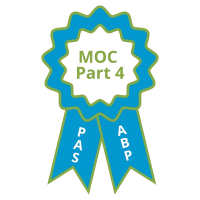Hospital Medicine Works in Progress
Session: Hospital Medicine Works in Progress
WIP 81 - Physician-Led Initiatives to Reduce Peripheral Intravenous Infiltration and Extravasations (PIVIEs)
Sunday, April 27, 2025
8:30am - 10:45am HST
Publication Number: WIP 81.7386
Kimberly Walter, Children's Health, Bedford, TX, United States; Amee Patel, University of Texas Southwestern Medical School, Dallas, TX, United States; Lynn M.. Clark, Children's Health System of Texas, Dallas, TX, United States

Kimberly Walter, MD (she/her/hers)
Resident Physician
Children's Health
Bedford, Texas, United States
WIP Poster Presenter(s)
Background: Peripheral intravenous (PIV) catheter insertion is one of the most common procedures for hospitalized pediatric patients worldwide yet has an unacceptably high failure rate. Specifically, infiltration, the inadvertent leakage of fluid from an IV catheter into the surrounding tissue, and extravasation, an infiltration of a known vesicant, are potentially harmful complications leading to PIV failures. These events, called peripheral intravenous infiltrations and extravasations or “PIVIEs” can lead to significant physical and emotional suffering for patients and families.
Several quality improvement projects have been implemented to reduce PIVIE rates that focus on nursing-led interventions such as improving Act-Touch-Feel assessments. However, based on our literature search, there is a lack of physician-led initiatives to improve PIVIE rates, especially in hospitalized pediatric patients.
Objective: In this quality improvement project, we seek to increase awareness and knowledge of PIVIEs among pediatric residents and monitor its impact on the rate of PIVIEs on the pediatric hospital medicine (PHM) service.
Design/Methods: This project was reviewed by the UT Southwestern Human Research Protection Program and determined to be “Non-Regulated Research” and therefore does not require IRB approval or oversight.
To address the high rate of PIVIEs, we first conducted a 12-month retrospective chart review of all PHM PIVIE events. After analysis of the chart review, we began implementation of the education intervention phase. An educational presentation was created and presented at a resident noon conference. In addition, reminders were placed in the resident workrooms regarding the negative impact of PIVIEs. A 10 question pre- and post- survey was created for pediatric residents to assess their knowledge and awareness of PIVIEs using a Likert scale, which will be analyzed using a t-test. PHM PIVIE rates will be monitored monthly through April 1, 2025 to assess whether there is an improvement in the rate of PIVIEs after our educational interventions.


